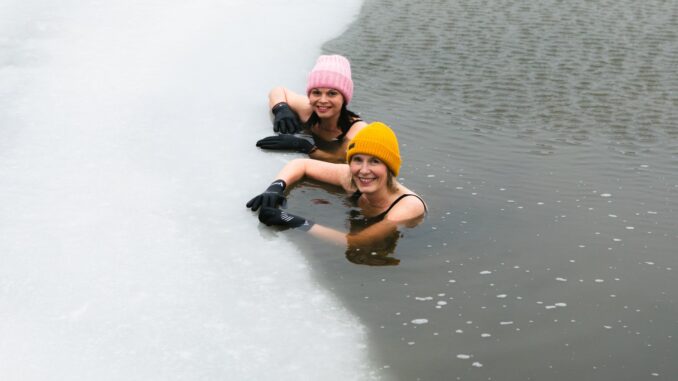
Cold water swimming has gained popularity in recent years, and for good reason. While it might sound daunting, plunging into chilly waters can have numerous physical and mental health benefits. Whether you’re diving into a frozen lake, a chilly ocean, or even taking a brisk swim in a cold pool, the experience can be a refreshing way to wash your cares away and reset your body and mind.
One of the most immediate effects of cold water swimming is the surge of endorphins it produces. When you submerge yourself in cold water, your body responds by releasing these “feel-good” hormones. Endorphins are known to reduce pain and stress, improve mood, and even boost your sense of well-being. This natural rush is why many cold water swimmers report feeling an incredible sense of clarity and happiness after their swim. It’s a great way to shake off the weight of stress, anxiety, or negative thoughts.
Physically, cold water swimming can have several benefits for your body. Regular exposure to cold water has been shown to improve circulation, boost the immune system, and increase metabolic rate. The shock of cold water causes your blood vessels to constrict, which helps flush toxins from your body. Once you exit the water, your blood vessels dilate, improving circulation and providing fresh oxygen to your tissues. This process can help with muscle recovery and may even reduce inflammation, making cold water swimming a popular choice among athletes.
In addition to the physical and mental benefits, cold water swimming can be a great way to reconnect with nature. Whether you’re swimming in the ocean, a river, or a lake, cold water swimming often takes you to beautiful, tranquil locations. The peacefulness of these natural environments combined with the invigorating challenge of the cold can help you feel more grounded and connected to the world around you. This sense of immersion in nature can be a calming antidote to the pressures of modern life.
While the idea of plunging into cold water might be intimidating, the key is to start gradually. Many swimmers begin by easing into colder temperatures over time, allowing their body to adapt to the shock of the water. Cold water swimming should always be approached with caution, and it’s important to be aware of the risks, such as hypothermia, especially in colder climates. However, with proper preparation and understanding of your body’s limits, the benefits of cold water swimming are clear.
In a world full of constant noise and stress, cold water swimming offers a simple yet powerful way to clear your mind, rejuvenate your body, and wash away the cares of daily life. It’s an experience that leaves you feeling refreshed, recharged, and more connected to both yourself and the natural world.
Leave a Reply